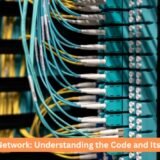What Is the SP AFF* Charge on Your Bank Statement?
In today’s digital world, online transactions and electronic payments have become the norm, making it easier and faster to pay for goods and services. However, this convenience sometimes comes with confusion, especially when unfamiliar charges appear on your bank statement. One such perplexing item is the “SP AFF* Charge.” If you’ve noticed this charge on your bank statement and are wondering what it is, you are not alone. Many consumers have encountered this mysterious entry and are left scratching their heads. In this article, we will delve into what the SP AFF* Charge is, why it appears on your bank statement, and how to address any concerns you might have about it.
Understanding the SP AFF* Charge
The SP AFF* Charge is an entry that appears on bank statements, often leaving consumers puzzled. The abbreviation “SP” typically stands for “Service Provider,” while “AFF” could represent “Affiliate” or another term related to the service or product being charged. This charge is generally associated with subscription services, online purchases, or membership fees. Companies use this shorthand to denote charges processed through an affiliate or service provider. It’s a way for businesses to manage and process payments, often through a third party that handles the transaction on their behalf.
The charge could be linked to a variety of services, including but not limited to, digital content subscriptions, software memberships, online courses, or even recurring donations. In many cases, the SP AFF* Charge is related to a service you have signed up for, either knowingly or unknowingly, such as a trial subscription that converts into a paid service if not canceled.
Why Does the SP AFF* Charge Appear on Your Bank Statement?
The appearance of the SP AFF* Charge on your bank statement is usually the result of a legitimate transaction. When you sign up for a service or make a purchase online, the payment may be processed by a third-party service provider rather than the company you directly interacted with. This can be confusing, especially if the charge appears under a different name than the one you recognize.
In some cases, the SP AFF* Charge could be the result of an automatic renewal of a subscription or membership. Many online services offer trial periods that automatically renew into paid subscriptions unless canceled before the trial ends. If you’ve signed up for a free trial and forgot to cancel, you may see the SP AFF* Charge on your bank statement as the service transitions into a paid subscription.
Common Services Associated with SP AFF* Charges
Various services and products are commonly associated with SP AFF* Charges. These include:
- Streaming Services: Online platforms that provide streaming content, such as movies, TV shows, and music, often use third-party payment processors. If you subscribe to such a service, the charge might appear under SP AFF* on your bank statement.
- Online Courses and Educational Subscriptions: Many educational platforms and online course providers use affiliate programs to manage their payments. Charges for courses, study materials, or other educational content may be listed as SP AFF*.
- Software Subscriptions: Software companies, especially those offering subscription-based services like antivirus programs, graphic design tools, or office suites, may use SP AFF* as a shorthand for their charges.
- E-commerce Purchases: Some online retailers, particularly those that use affiliate marketing or third-party processors, may also show up as SP AFF* on your statement.
- Recurring Donations or Charitable Contributions: If you regularly donate to a charity or non-profit organization, particularly if the donation is set up as a recurring payment, it might be processed through an affiliate or service provider, leading to an SP AFF* Charge on your bank statement.
How to Identify the SP AFF* Charge
Identifying the SP AFF* Charge can be tricky, especially if you don’t immediately recognize the name on your statement. Here are some steps you can take to determine the source of the charge:
- Review Your Recent Transactions: Start by reviewing your recent transactions and purchases. Think about any services or subscriptions you may have signed up for, even if they were free trials. Check your emails for confirmation or receipts related to these transactions.
- Check with Your Bank: If you’re unable to identify the charge through your records, contact your bank or credit card issuer. They may be able to provide additional information about the transaction, such as the merchant’s name and contact details.
- Contact the Merchant: If you can identify the merchant, reach out to their customer service team. They can clarify the charge and provide details about the service or product associated with it.
- Look for Patterns: If the charge is recurring, it may be linked to a subscription or membership. Look for other entries with similar amounts or descriptions on your statement. This can help you identify the pattern and trace it back to the source.
- Search Online: Sometimes, a quick online search using the charge description (e.g., “SP AFF* Charge”) can reveal information from other consumers who have encountered the same issue. Forums and consumer websites may provide insights into the nature of the charge.
Steps to Dispute or Cancel the SP AFF* Charge
If you determine that the SP AFF* Charge is legitimate and you recognize the service, but no longer wish to continue with it, here are the steps to cancel or dispute the charge:
- Cancel the Service or Subscription: Once you’ve identified the source of the SP AFF* Charge, visit the service provider’s website or contact their customer support to cancel the subscription. Make sure to request confirmation of the cancellation and keep a record of it.
- Request a Refund: If the charge was unauthorized or you forgot to cancel before a trial period ended, you might be eligible for a refund. Contact the merchant and explain your situation. Many companies offer refunds, especially if it’s a first-time occurrence.
- Dispute the Charge with Your Bank: If you cannot resolve the issue with the merchant, or if you believe the charge is fraudulent, you can dispute the charge with your bank or credit card issuer. They will investigate the transaction and may issue a refund if they find in your favor.
- Monitor Your Account: After taking these steps, continue to monitor your bank statements for any further unauthorized charges. Consider setting up alerts with your bank to notify you of any new transactions.
How to Prevent Future SP AFF* Charges
To avoid unexpected SP AFF* Charges in the future, consider the following precautions:
- Be Cautious with Free Trials: Always read the terms and conditions before signing up for free trials. Make a note of the trial period and set a reminder to cancel if you do not wish to continue with the service.
- Keep Track of Subscriptions: Use a subscription management tool or maintain a list of all the services you subscribe to. This will help you stay organized and avoid unwanted renewals.
- Regularly Review Your Statements: Make it a habit to review your bank statements regularly. This will help you spot unfamiliar charges early and take action before they become a recurring issue.
- Use Virtual Credit Cards: Some banks offer virtual credit cards for online purchases. These cards are tied to your main account but have a different number, making it easier to control and monitor specific charges.
Conclusion
The SP AFF* Charge on your bank statement may initially seem mysterious, but with some investigation, it can usually be traced back to a legitimate source. Whether it’s a subscription, online purchase, or another service, understanding this charge can help you manage your finances more effectively. By staying informed and vigilant, you can prevent unexpected charges and ensure that your bank statements reflect only the transactions you’ve authorized.
Read also: check





























































